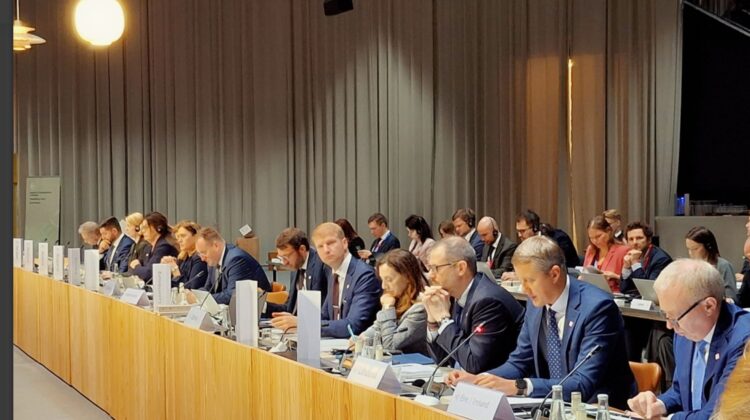Acting Minister of Energy Žygimantas Vaičiūnas participated in an informal meeting of EU energy ministers in Copenhagen, Denmark, on September 4–5.
The informal ministerial meeting discussed the future of Europe’s energy architecture beyond 2030, as well as digitisation, clean technologies, and energy infrastructure issues.
“Energy security and the protection and resilience of critical energy infrastructure are among the top priorities, which must be clearly reflected in the EU budget. In response to the current geopolitical situation, russia’s ongoing attacks on Ukraine’s infrastructure, and incidents in the Baltic region we must allocate the necessary resources and efforts to ensure the protection of critical energy infrastructure,” Mr Vaičiūnas, Acting Minister of Energy, said.
Lithuania emphasised that funding for energy security should be among the primary issues in the next EU Multiannual Financial Framework for 2028-2034, which should create funding instruments accessible to all Member States and focused on the protection of critical energy infrastructure. This once again highlights the urgent need to be prepared to withstand threats to energy security.
“Our policy must also lead the EU to a complete cessation of energy imports from Russia. Therefore, Lithuania actively supports swift, effective and principled negotiations on the REPowerEU Regulation, which would ensure urgent and firm commitments to reduce energy imports and stop financing russia’s military capabilities. We look forward to further REPowerEU proposals that would continuously strengthen our energy security,” Mr Vaičiūnas noted.
During a meeting between Lithuania, Latvia, Estonia and Poland, which was organised on the sidelines of the informal Energy Council meeting, the countries agreed on further steps to implement the Memorandum of Understanding on the Protection of Critical Energy Infrastructure and Further Cooperation signed by the parties in June and to create a regional model for critical energy infrastructure protection. The meeting noted that now is the right time to actively seek dedicated EU funding for critical infrastructure protection, and that existing funding mechanisms should also be exploited.
In the margins of the Council meeting, Acting Minister of Energy Vaičiūnas also held meetings with the heads of delegations from Finland, Sweden, Ukraine, Belgium and Spain, which mainly focused on energy security and critical energy infrastructure protection issues.
The bilateral meetings held during the visit also emphasised the importance of strategic cooperation with Ukraine. Given the challenges facing the EU, it is important to assess the unique opportunities that arise outside the EU. Ukrainian companies, formed by the realities of war and resilience, are particularly well suited to developing cutting-edge infrastructure protection technologies. Such cooperation would not only strengthen regional resilience but also demonstrate the EU’s commitment to strategic solidarity and mutual benefit, while creating a structured mechanism for business-based support to Ukraine.
A formal meeting of the EU Energy Council is scheduled for 20 October in Luxembourg and 15 December in Brussels.






























